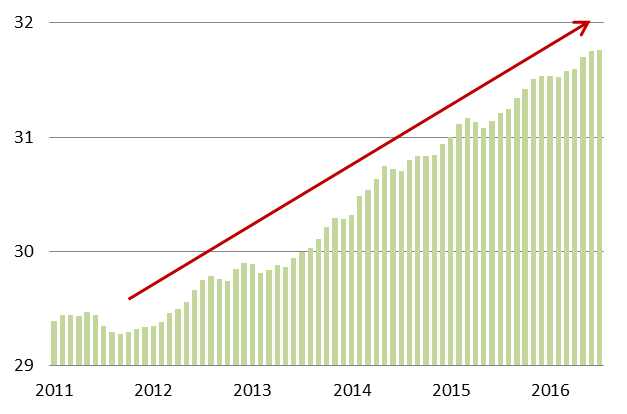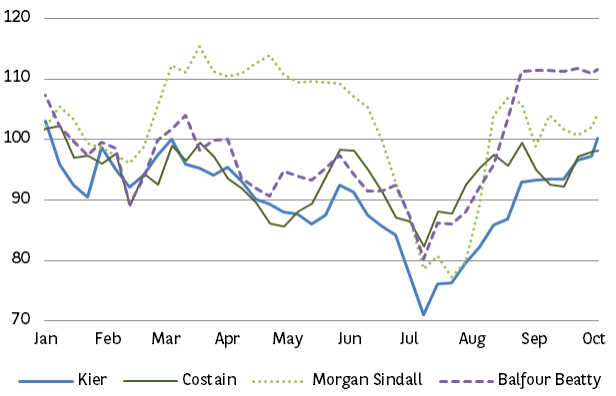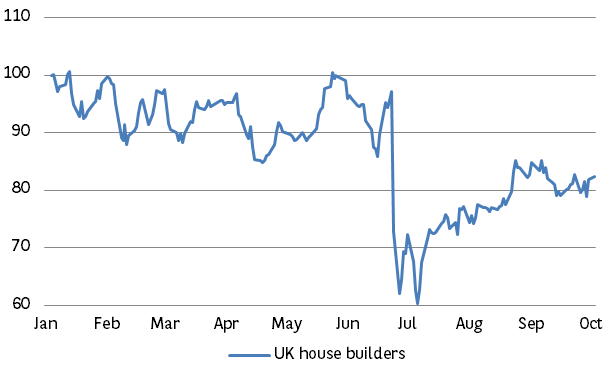Why Brexit can be the bearer of building opportunities
Housing and infrastructure projects are set for a significant boost from UK chancellor Philip Hammond.
Amid the intensifying chatter over Brexit in the wake of UK Prime Minster Theresa May's decision to trigger Article 50 by the end of March 2017, you would be forgiven for thinking that all foreign companies were reconsidering their footprint in this island.
Apple commits to the UK
Clearly, Apple is not worried by Brexit, as it has just committed to leasing 500,000 square feet of office space in the old Battersea Power Station. This will comprise a huge 40% of all the office space planned for this building when completed in 2021, and offers enough space for up to 3,000 employees.
Apple currently employs 1,400 people (excluding Apple stores) in the UK, so this will be enough space to rehouse them all in a single location, with ample room for future growth.
One interpretation of this bold move by Apple is that it is confident in the future of the UK as a key European base for the company over the decade to come, despite the uncertainty and volatility engendered by the UK's withdrawal from the European Union.
The same confidence cannot be said of the currency markets: the pound sank to another new multi-year low against both the US dollar ($1.286) and against the euro (€1.146) on the back of PM May's Brexit announcement (Chart 1).
Philip Hammond to boost economic growth via investment

May's Chancellor of the Exchequer, Philip Hammond, has signalled his intent to offset any economic weakness resulting from the Brexit decision via a boost to investment.
In his own words:
"Anecdotally we hear of businesses postponing investment decisions... If we don't intervene to counteract that effect in time, that will have an effect on jobs."
In recent years, the UK has posted impressive growth in employment, rising by over two million from 2011 to 31.9 million people in employment today (Chart 2).
But with large employers like Nissan threatening to pull investment out of its Sunderland car plant if EU trade tariffs are imposed on cars built in the UK, this employment growth trend is clearly at risk.
Boosting investment in infrastructure

There are two key areas that Hammond is targeting: firstly investment in large infrastructure projects focused around the transport and energy generation sectors, such as:
- The HS2 high-speed rail line to connect London to the Midlands and northern cities;
- A new runway for London, very likely to be built at Heathrow airport;
- Crossrail 2 to run from the north to the south of London, massively increasing future commuter transport capacity;
- EDF's projected Hinckley Point nuclear power plant for electricity generation, targeted to provide 7% of the UK's total electricity requirements for 60 years.
Which companies could benefit from this infrastructure investment push?
Obvious names in the UK include contracting engineers and building companies who typically manage large infrastructure projects, including:
- Kier Group (UK code KIE);
- Balfour Beatty (BBY);
- Morgan Sindall (MGNS); and
- Costain (COST).
Of these four building contracting companies, only Balfour Beatty has made investors any significant money over the last year, although they all showed a sharp rebound post the 23 June Brexit vote (Chart 3).
A new focus on boosting the stock of rental housing

Another clear change in direction from the government can be seen in the area of housing policy. Philip Hammond has scrapped support for the Help to Buy policy, and is instead looking at driving £5bn of investment in new housing stock.
Of this, £3bn is being allocated to set up a Home Building Fund that will help small housebuilders build a targeted 25,000 new homes by 2020, and up to 225,000 in the long-term.
On top of that, £2bn will be committed to building 15,000 new homes on surplus public sector land, often owned by transport companies like Network Rail.
Housebuilders should get a growth boost from this extra spending on housing, such as:

- Taylor Wimpey (UK code TW);
- Bellway (BWY);
- Bovis Homes (BVS); and
- Brownfield housing development specialist Inland Homes (INL).
The Bottom Line: while the Brexit process will inevitably be fraught with uncertainty over at least the next couple of years, there are still investment opportunities being thrown up by the changes in government economic policy.
UK house builders' share prices are still 18% below where they were at the beginning of the year (Chart 4), and of the contractors Kier Group is still catching up with its contracting peer group.
© Copyright IBTimes 2025. All rights reserved.



















